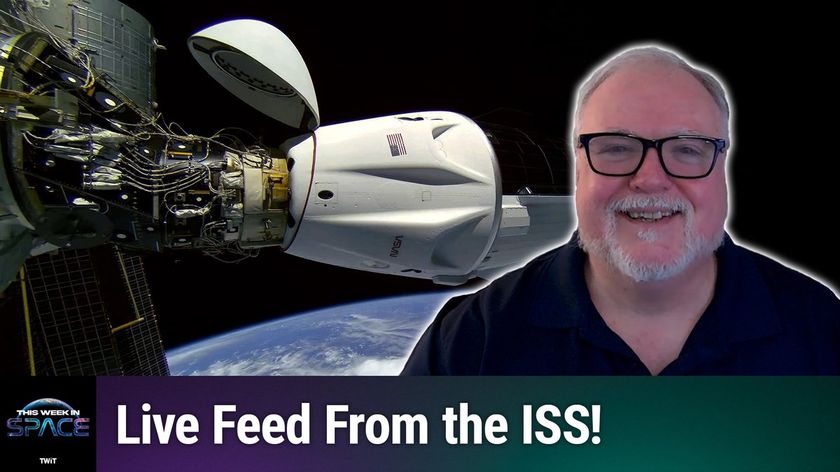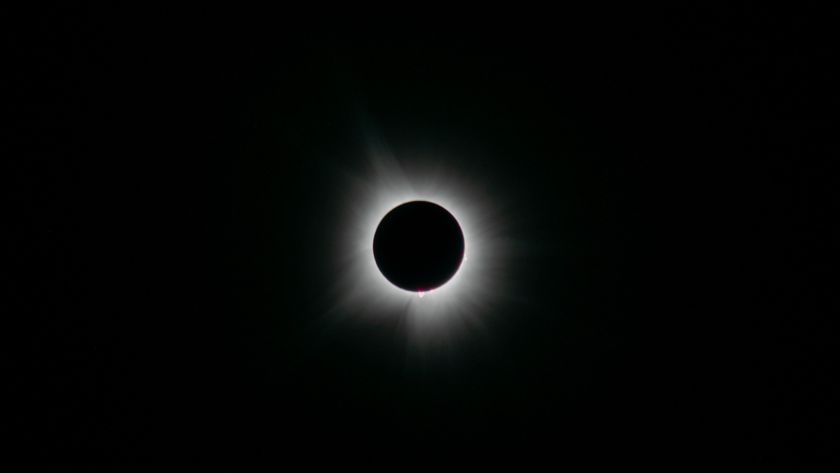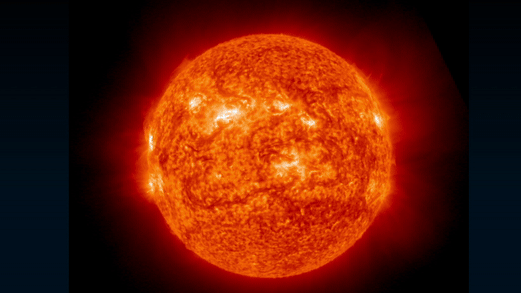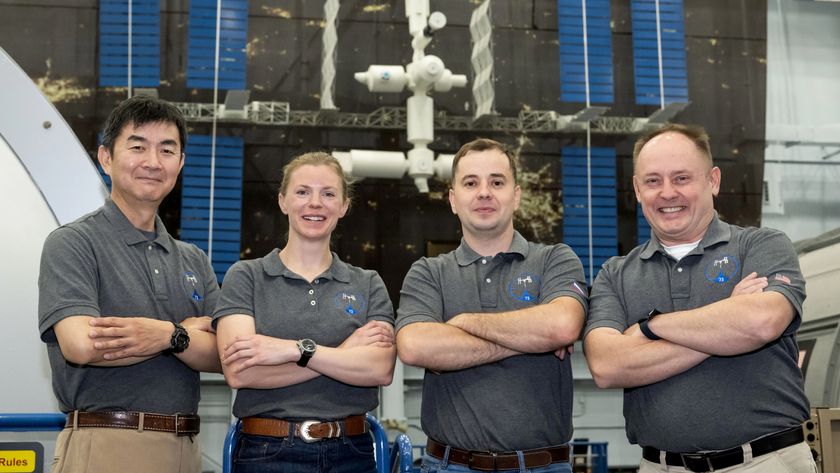Firefly Aerospace readies Alpha rocket for 2021 debut launch, ramps up operations
The company has big plans for this year.
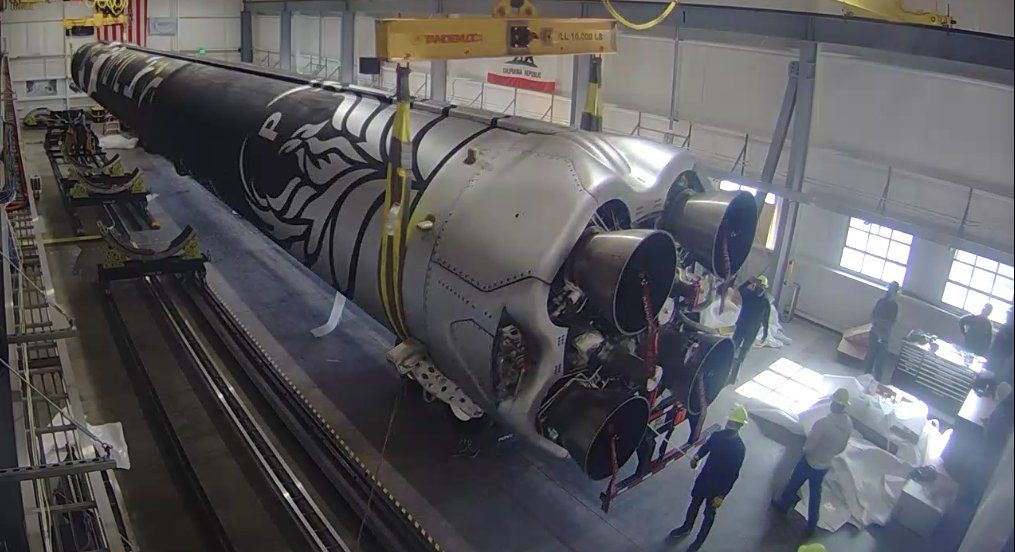
Though Firefly Aerospace missed its own 2020 deadline to launch its Alpha rocket into space, the company says it's confident a 2021 debut is in the cards.
In an exclusive interview with Space.com, Firefly CEO Tom Markusic described the flurry of activity going on at his new home base at California's Vandenberg Air Force Base, where he divides his time into two chief areas. Half of it is supporting launch teams for the first Alpha launch, which is expected to take place this spring, and the other half is looking at options for a very large fundraising round.
Markusic is hoping for a large external infusion of money to add to Firefly's ongoing "bootstrap" efforts to win contracts from large vendors; the money could come from public or private sources depending on interest, he added. (By late 2020, more than $160 million had come to Firefly from co-founder Max Polyakov, through his company Noosphere Ventures, according to CNBC.)
Related: Firefly Aerospace uses rocket engine to light birthday candles in epic cake video
Markusic said the company is at a crucial "inflection point" as it moves toward securing contracts for the small-satellite launcher Alpha and also continues developing an ecosystem of products that includes a larger successor rocket (Beta) and a robotic moon lander (Blue Ghost).
"When you look at companies like ours, there is this development phase that is risky, with all kinds of ups and downs, and we are really transitioning to an operational phase — plus trying to address the next generation of products," he told Space.com. "Having said that, the real demarcation of that inflection point is successfully launching Alpha to space."
Markusic said that Firefly had aimed to get Alpha off the ground by the end of 2020.
Get the Space.com Newsletter
Breaking space news, the latest updates on rocket launches, skywatching events and more!
"But 2020 was a crazy year in many ways," he added. "I'm not one for excuses, but it was one of the hardest years I've seen in my lifetime. We should consider ourselves fortunate we got as far as we did."
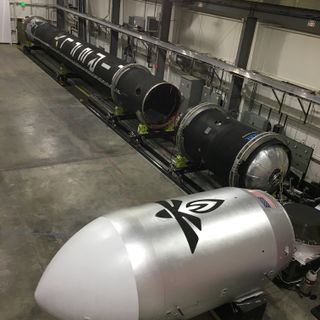
Firefly's desired timeline was partly derailed by the coronavirus pandemic, which has been difficult for many in the space industry. While investment opportunities remain high, in part buoyed by a strong stock market and overall aerospace sector growth, manufacturing companies of all stripes (even outside of space) suddenly found themselves grappling with physical distancing, supply chain hiccups and other obstacles due to COVID-19.
Alpha is "ready to go," but two other major issues delayed its launch, Markusic said. The first involved an avionics flight termination system piece from an external vendor (whom Markusic did not name), which had qualification issues that created delays.
Also, Markusic said, "we didn't put enough focus on the launch site." Upgrading the United Launch Alliance Delta II facilities Firefly inherited at Vandenberg proved to be "more challenging than anticipated," he added, but "we're literally weeks away from being done."
One of Alpha's differentiators from other startup rockets, according to Firefly, is a more crack- and leak-resistant propellant system, built with carbon fiber composites designed to contain supercooled liquid oxygen fuel.
Another big attractor for customers is Firefly's goal to soon provide end-to-end "space services," ranging from launch to landing and also including a specialized subsidiary for security launches. The subsidiary, called Firefly Black, was selected in late 2020 to launch Mission Two of NASA's Venture Class Launch Service Demonstration 2 contract. This mission will deliver two cubesat constellations to space.
And last month, NASA announced that it had contracted with Firefly to land science instruments on the moon in 2023 using Blue Ghost. That deal, which was organized via the agency's Commercial Lunar Payload Services program, is worth $93.3 million.
Private moon rush: These companies have big plans for lunar exploration
After Alpha's debut, Markusic said, Firefly hopes to launch two more operational flights with paying customers aboard, perhaps also in 2021 — but only if the rocket is ready.
It's been a long and busy road to launch thus far. Firefly rose from the ashes of a predecessor company, Firefly Space Systems, that filed for bankruptcy protection a few years ago due to a major European investor pulling out as a result of Brexit.
By early 2019, after 2.5 years of hard work largely outside of the view of the world, the new Firefly had a Cinderella story to tell, as the company secured a $52 million expansion for future launches at Florida's Cape Canaveral. It also had a big NASA contract win in 2018 via CLPS, which aims to spur lunar exploration by aiding the development of private landers, rovers and other craft.

Meanwhile, Firefly company growth is up 50%, with roughly 325 employees now compared to 200 a year ago. Many of these people are working remotely, and those that do come into facilities have special shifts ensuring a minimum of people overlap with each other.
"We haven't had any employee-to-employee spread of the virus, which is pretty amazing," Markusic said. A small handful tested positive for COVID-19 from external sources, and strict quarantines were immediately put into place to protect fellow workers each time.
In recent months, Firefly has been active on Twitter posting updates for the public and potential investors. This included a Jan. 22 note that Alpha is undergoing final integration and checkouts of its first stage, second stage and payload section, and announcing a multi-year launch services agreement with Adaptive Launch Solutions in December.
Follow Elizabeth Howell on Twitter @howellspace. Follow us on Twitter @Spacedotcom and on Facebook.
Join our Space Forums to keep talking space on the latest missions, night sky and more! And if you have a news tip, correction or comment, let us know at: community@space.com.

Elizabeth Howell (she/her), Ph.D., was a staff writer in the spaceflight channel between 2022 and 2024 specializing in Canadian space news. She was contributing writer for Space.com for 10 years from 2012 to 2024. Elizabeth's reporting includes multiple exclusives with the White House, leading world coverage about a lost-and-found space tomato on the International Space Station, witnessing five human spaceflight launches on two continents, flying parabolic, working inside a spacesuit, and participating in a simulated Mars mission. Her latest book, "Why Am I Taller?" (ECW Press, 2022) is co-written with astronaut Dave Williams.


